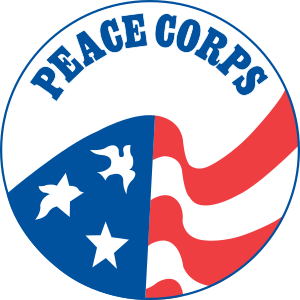Last week I took my family on their first trip to Los Angeles. For the girls, it was a series of firsts: first trip on an airplane, first trip to the West Coast, first trip to the beach, first view of the ocean, first ride on a boat, first stay at a hotel. In addition to being sunburnt to a precancerous fiery red, highlights of the trip included a visit to the La Brea tar pits, Venice Beach, Dume Beach, and yes, inevitably, Disneyland. (It is amazing what a cheap bailing wire and pasteboard aspect Disneyland presented in comparison with my memories of several decades past.) And no, the years have not made me fonder of carnival rides that go high and fast.

Image via Wikipedia
The cross section of people that assembled for the reunion continue to be an inspirational cadre who are promoting the common good on a daily basis. From the engineers who are keeping the water supply safe and promoting solar and geothermal energy, to the teachers who are educating our children, particularly our special needs children, to the environmental scientists who struggle to save our own wilderness heritage in the face of too much bureaucracy and too little money, this is a group that has remained committed to making a difference. My old friends, and I say that proudly, include an eye doctor, an U.N. translator, a software executive, and an entrepreneur and are involved in endeavors that span the globe from France to Australia to China.
On a personal note, I was particularly glad to see three people who made my experience in Morocco especially meaningful, The first, a co-organizer of the event, was one of the first people I met in Peace Corps and one of the ones I have known best and seen most over the years - a crazy-assed water baby who once griped, "I am everybody's best friend in Peace Corps." I am glad he is mine. The second was my next-door neighbor, only four hours away by way of the derelict Mercedes known as "grand taxis." A person of style, poise, and grace, she was the best neighbor one could have -- supportive, present when needed, and tolerant of the foibles of someone who has spent too long in an isolated Moroccan village. Third was the volunteer who organized the program at the La Creche Lalla Hasna orphanage where I spent my summer filling in between teaching stints in the countryside, an exemplar not only of concern and compassion for children but also of grace and cultural sophistication. (By way of example, she travels with the music of the Tuareg on her iPhone).
Justice requires a longer tribute than space allows; there is not space here to discharge my debt to the many Volunteers who bettered my life both during and after Peace Corps. But at our reunion, for one brief shining moment, we were again Peace Corps Morocco. And for that moment, hijinks aside, we could remember that we were and are heirs to the clarion call issued in a simpler time by President John F. Kennedy in his Inaugural Address: "And so my fellow Americans, ask not what your country can do for
you - ask what you can do for your country."
